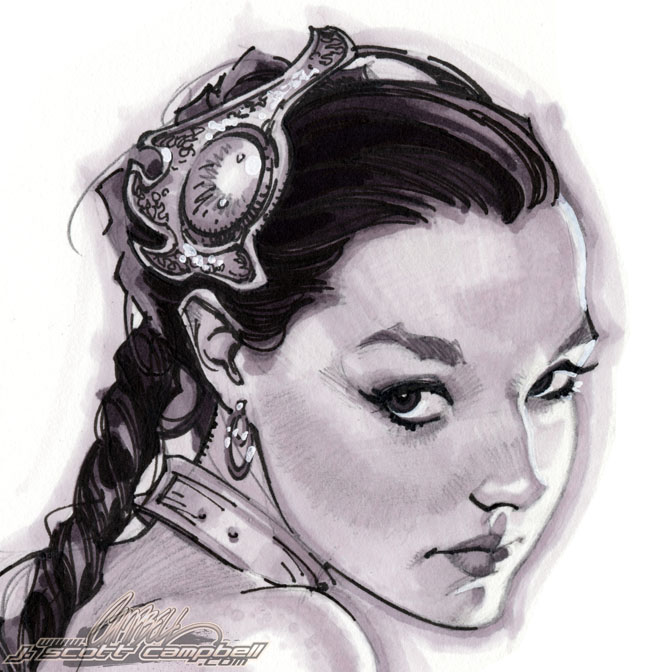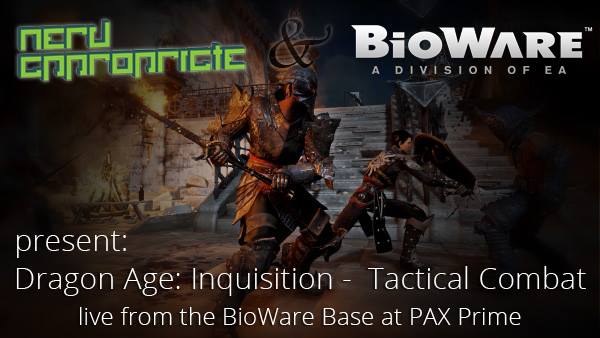
This is my fourth, and final, attempt to write up this Geek Girl Con panel. Summarizing it has been tricky as there were lots of great points made and I simply can’t cover them all. Our panelists, all members of Crabcat Industries, were Jessica Merizan (Bioware’s new CM), Hilary Shapiro, and Elizabeth Heckmaier. The discussion started at a different place than I expected: fandom. In my limited experience, discussions of sexism in video games focus on the end result, or marketing of products. It makes sense to discuss the consumers though. Fans can play a role in bringing about changes as they’re the ones buying the products. Most companies are looking to keep current consumers, as well as bringing in new ones. If fans are asking for changes, like positive portrayals of women in video games, sometimes they can succeed in bringing them about.

When Commander Shepard was almost blonde, the internet went berserk
FEM SHEP: That said while fans can be part of the solution, sometimes they can hamstring the progress they’re advocating with infighting. One of the examples the panelists noted was the Bioware vote over the appearance of the default female Commander Shepard. Fans were a key in lobbying for the presence of the female version of Shepard in the marking for Mass Effect 3. Yet, when it was revealed this would be decided by voting on Shepard’s appearance, some of these same people began attacking the marketing campaign, as well as each other. People didn’t like that she was blonde, looked young, or was “prettier” than they would prefer. They perceived the vote to putting their icon in a beauty pageant. It presented a bit of a quandary. Getting female Shepard on the collector’s edition box, as well as having her featured in a forthcoming trailer, is more attention than the character had gotten in the previous two games. Progress had been made, yet it created a negative backlash. Bioware made efforts to mitigate the fallout, but the damage had been done in terms of fan divisions.

J Scott Cambell: Slave Leia Christy
EMPOWERMENT: More important than re-hashing a controversial topic, it led to a dialog about how different people view the empowerment of women in games and fandom. One example that was noted was the “Slave Leia,” and other such revealing costumes, that are sometimes seen at cons. The panel noted, for some women, that’s how the costumes are one way they express themselves, yet other women view wearing that costume as exploitative and pandering to the male gaze. The discourse between the two sides can get unpleasant, despite the fact that they both believe in the empowerment of women, they just see differently on the presentation in this case. And it’s okay to have differing viewpoints! It’s not helpful to disrespect another person’s view simply because it does not match with one’s own.
REPRESENTATION: Again, I’m not doing this discussion justice, but ultimately the message that was delivered by the panelists was that we, as fans, need to play nice and work together towards better representation of women in video games. The trolling on message boards, the flame wars are all counterproductive and detract from the end goal: working to see women presented in games in a positive light. Behind the user names, Twitter handles, there are people. It’s one thing to be critical, to express dissatisfaction over a feature/presentation of a character/level, but making a personal attack does more harm than good and inhibits bringing about the desired change.
 Natalie currently resides in the San Francisco Bay Area where she tries to balance full-time work and various nerdy hobbies. While being a huge Bioware fangirl, she also enjoys other video games (i.e. Arkam City, the Fable series) as well as comic books set in the DC universe
Natalie currently resides in the San Francisco Bay Area where she tries to balance full-time work and various nerdy hobbies. While being a huge Bioware fangirl, she also enjoys other video games (i.e. Arkam City, the Fable series) as well as comic books set in the DC universe











It’s just awesome that these panels are now happening at cons. It’s definitely a step in the right direction to raise awareness and try to bring the community closer together.